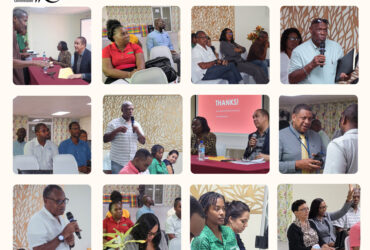Licensing in Dominica
The challenge IRC faced was providing a licensing framework for Regular Licenses (licenses other than interim licenses), especially generation licenses. Prior to the inauguration of IRC, there were already a number of existing and prospective independent power producers interested in investing in the generation of power in Dominica. It envisaged that a number of these companies will be approaching The IRC requesting licenses to enable them to commence operation.
To tackle this challenge, the Legal Support/Licensing Division will immediately have to review the terms in the Act and work on the drafting o a regulation on the application for licenses.
The draft regulation among other things provided for the manner and procedure for applying for a license.
News / Insights / Notices
Keeping You Informed
A New Rate Structure for DOMLEC
On Tuesday, May 13, IRC hosted a Stakeholders' Forum to present proposed changes to enhance the electricity pricing system. Here is the slide presentation on …
IRC Proposes Changes to Enhance Electricity Pricing Structure
The Independent Regulatory Commission (IRC) has announced proposed changes to Dominica’s electricity pricing structure, including the introduction of Time-of-Use (TOU) tariffs. These changes aim to …
IRC to Present Modernized Electricity Rate Structure at Stakeholders’ Forum
IRC will present a modernized electricity rate structure for Dominica Electricity Services Ltd. (DOMLEC), at a Stakeholders’ Forum scheduled for Tuesday, May 13, 2025. …









